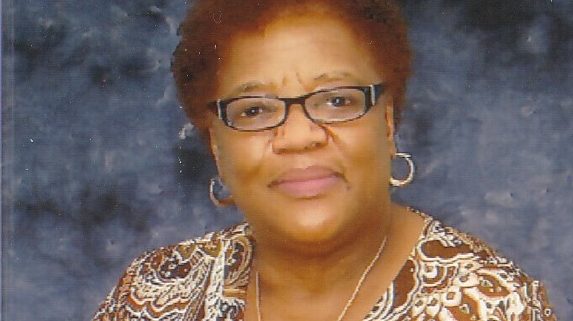Quebec and Racism—Time to lift her head out of the sand
By Yvonne Sam: Chairman (Rights and Freedoms Committee) Black Community Resource Centre
Ontario has set the pace and Quebec must now join in the race. But before doing so, we must try to come to a common understanding of racism, and the roots of racism in Canada. It is difficult to change what you refuse to acknowledge, and equally difficult to acknowledge what you cannot see. There is pervasive evidence in Quebec that some French leadership, even the most radical, do not believe that the French Settler classes are to be blamed for racism against Blacks, Asiatics, the indigenous peoples, or for the acts of genocide carried out against them. The radicals blame this on the dominance of British colonial capitalism in Canada. They bestowed sainthood on the working classes that they declare to be the true source of revolutionary change and absolve themselves.
In Quebec, they covered up their complicity by declaring themselves the White Niggers of America. But, also in Quebec, there are the elite French Settler classes who define Quebec as a French nation struggling against “English Canada money and the Immigrant vote” to retain its culture, language and rights over all the territories that it considers to belong to the settler nation of Quebec and essential to its pursuit of national independence and Frenchness. In this Quebec, both of these classes of leaders believe that the right to be French trumps the rights of “others” to their liberty and human rights. Hence, the “notwithstanding clause”. Hence, their annoyance when one points out that the quasi constitutional agreements between Quebec and Canada institutionalizes the practices of systemic racism and discrimination in Quebec and Canada.
The evidence is in. Ontario seems to recognize it. What hinders the Quebec government is the Protectorate of the citizens’ from forming an Anti-Racism Directorate. The demand is out. This time, with some degree of moribund urgency, there is a demand for the Quebec government to tackle the gnawing problem of systemic racism and how it adversely affects more than a million people in the province.
The government of Ontario, clearly on the ball, recently announced the establishment of an Anti-Racism Directorate, primarily geared to address racism in all its forms: individual, systemic and cultural. Such a directorate is a direct acknowledgement of the existence of systemic racism, including anti-Black racism, anti-Indigenous racism, Islamophobia and racism experienced by other communities, including the Jewish community, all of which can act as barriers to progress and opportunity.
A recent Washington Post Opinion piece, that ran three days after six men were killed at a Quebec City mosque, claimed that the province of Quebec was more racist than the rest of Canada. Members of the legislature sprang into action immediately voting unanimously to denounce the article, once again seemingly more concerned about bruised egos than dealing with the festering issue. (www.washingtonpost.com/news/global-opinions/wp/2017/02/01/why-does-progressive-quebec-have-so-many-massacres/?utm_term=.e812d542cd4c). Following the shooting, members of the Coalition for Equality and against Racism said that the shooting was an extreme manifestation of racism and xenophobia.
From time immemorial the province has been struggling with acceptance of the presence of racism, preferring to call it any other name except that which it merited. Over a decade ago, the Consultation Commission on Accommodation Practices Related to Cultural Differences, later referred to as the Bouchard-Taylor Commission, investigated the issue of reasonable accommodation of minorities in the province, hearing from experts, individuals and organizations on identity, integration and religion, all at a cost to taxpayers of $3.7 million. Now, in recent times, a petition from associations and a collective of individuals has been delivered to the National Assembly, once again demanding a public commission on systemic racism. Premier Couillard has given in to the demands for a provincial inquiry into the treatment of First Nation Women, and, in a further apparent face saving gesture, mandated retired Superior Court Judge Viens to investigate into systemic violence, racism or discrimination against Indigenous men and women throughout the health, social services and justice network. The province is also establishing a working committee with Indigenous groups to find rapid solutions to continuing problems, independent of the work of the Commission. Although, one notes that the Commission would not be disclosing its findings until sometime after the 2018 election. We note that Mr. Martineau, of the Journal Montréal (http://www.journaldemontreal.com/2017/03/29/le-paradis-des-racistes), does not like Mr. Coullard’s decision, and basically accuses him of letting down the “nation” class. He writes: “Philippe Couillard could have said: “Let’s see, systemic racism, you do not think about it! It’s insulting to Quebec society.” But no. It will leave it to the anti-racist organizations to tell us whether we are racist or not. If, in addition, it can discredit its political opponents and portray them as xenophobes, so much the better. This is called instrumentalizing a cause for its own benefit. Shame on you, Prime Minister.”
Ontario is, in no way, anymore racist than Quebec, the striking difference being, however, that the issues were important enough to merit corrective mechanisms being put in place. On the other hand, in a neighboring province called Quebec, which has a pervasive and long standing problem with racism, it has become blatantly apparent to anyone with rudimentary observational skills that Quebec needs to accept the concept of racism before setting up a bureaucracy to battle racism; and, as in Ontario, not only does similar corrective steps need to be taken, but they need to be taken expeditiously.
Racism in Quebec has been an ongoing problem, albeit shrouded in taboo-like garments. No longer can Premier Couillard continue to bury his head in the sand, for ignoring the reality of racism will only make the situation worse. The inaction must stop and action must be taken.
Yvonne Sam
For full version of Semaji March 2017 Click Here




